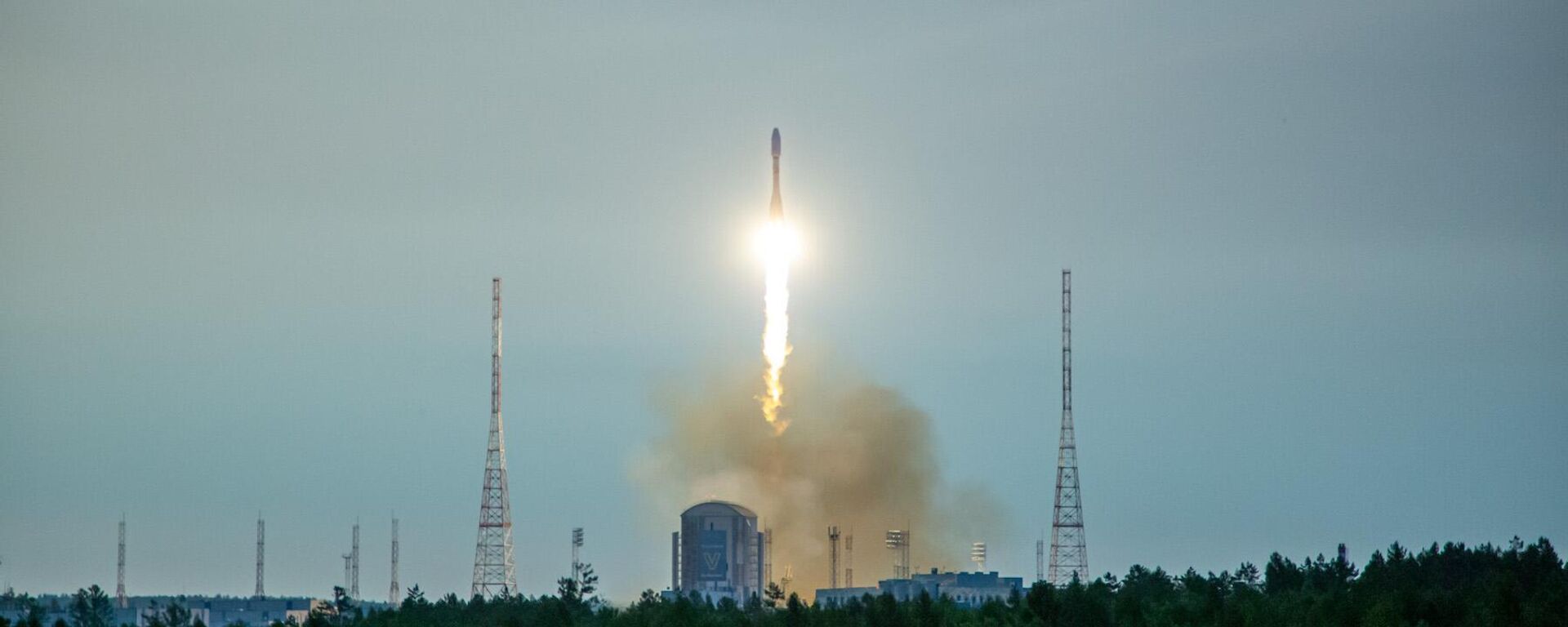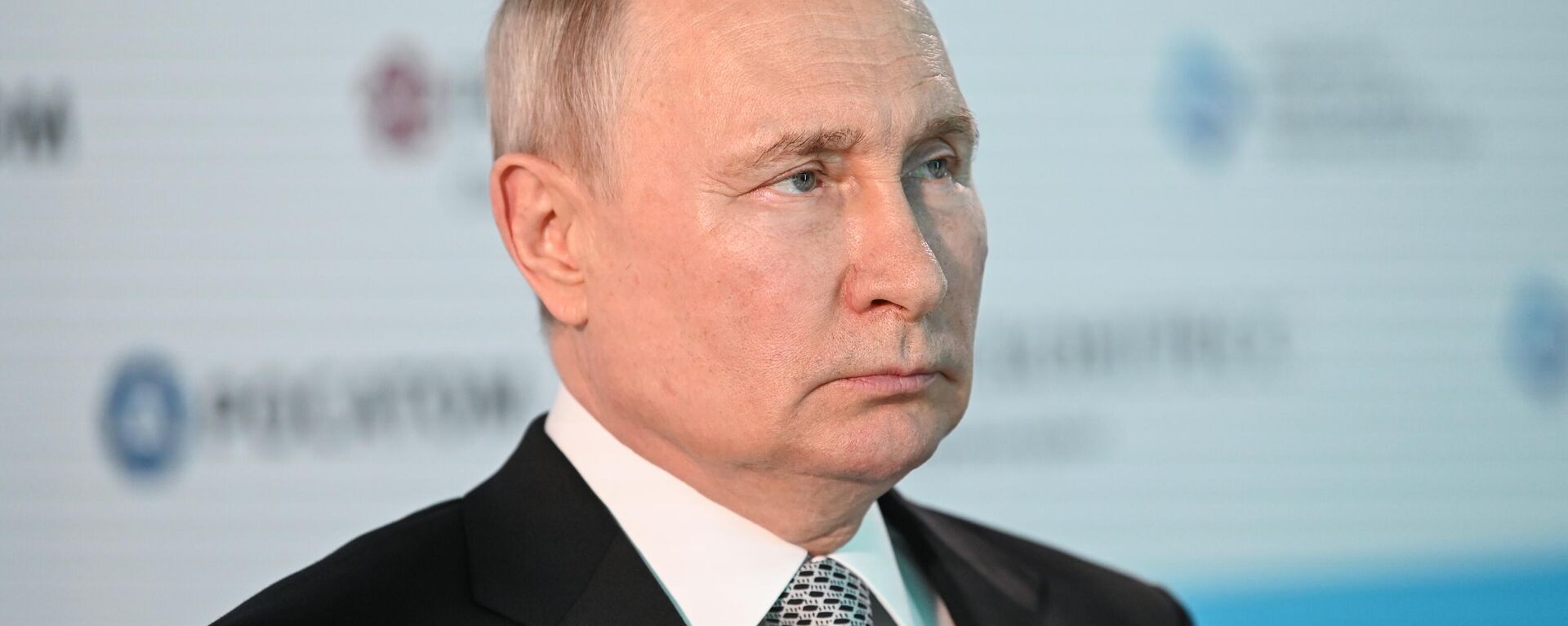https://en.sputniknews.africa/20230715/moscows-future-technologies-forum-highlights-quantum-computing-advances-new-scientific-alliances-1060555614.html
Moscow's Future Technologies Forum Highlights Quantum Computing Advances, New Scientific Alliances
Moscow's Future Technologies Forum Highlights Quantum Computing Advances, New Scientific Alliances
Sputnik Africa
Despite Western sanctions, Russian scientists have made a leap forward in quantum computing and its practical applications, while striking new deals with... 15.07.2023, Sputnik Africa
2023-07-15T17:15+0200
2023-07-15T17:15+0200
2023-08-03T10:50+0200
features
russia
vladimir putin
science
research
technology
international
https://cdn1.img.sputniknews.africa/img/07e7/07/0f/1060555092_0:0:3124:1757_1920x0_80_0_0_b26223e078af14561c2ea8e58cb892ed.jpg
During the past six days, the hallways of Moscow’s World Trade Center have been packed with visitors – top scientists, bankers and entrepreneurs. Even though the organizers of the Future Technologies Forum decided to hold many discussions behind closed doors, public events included a plenary session, with Russian President Vladimir Putin addressing the participants, as well as a series of smaller conferences, such as Thursday’s session on Russia’s technological sovereignty.Sanctions and New AlliancesIn 2022, Russia’s scientific institutions were hit by Western sanctions over the special military operation in Ukraine. Last year’s International Congress of Mathematicians, which was supposed to be held in Saint Petersburg, was turned into an online event. Some Western scientific journals have even been mulling a ban on manuscripts by Russian researchers, with at least one publisher enforcing such ban a since March 2022.Nevetheless, the Russians seem to have quickly managed to counter the boycott. According to Grigory Trubnikov, director of the Joint Institute for Nuclear Research (JINR), it took his organization a little over three months to establish new strategic partnerships instead of the old ones. While Ukraine, Poland, Slovakia, Bulgaria, Czech Republic terminated their membership in the JINR, which has a status of an international intergovernmental center for fundamental theoretical and experimental research, other nations immediately queued in to join it.Despite the West’s hostility, it appears that self-isolation is not an option for Moscow either, and, according to some participants of the forum, Russia could assure its technological sovereignty by creating new alliances in friendly countries.Quantum Cities and Urban DevelopmentWith technological sovereignty being high on the agenda, the general theme of the Forum, however, revolved around quantum computing and Russia’s breakthroughs in the area.On Thursday, Putin was shown an advanced 16-qubit ion-based quantum computer made by the State Corporation Rostec. It’s capable of calculating a simple molecule with the use of a cloud platform, and is currently the most powerful machine of its kind in Russia.The participants of the forum have paid a lot of attention to discussing possible practical uses of such advanced computers.According to Vladislav Ovchinsky, head of Moscow’s Department of Investment and Industrial Policy, Russia’s capital has many areas where quantum computing can be applied.The participants also discussed topics such as ethical aspects of the digital world, AI, superconductors and the digital economy.The Future Technologies Forum was held as a part of an ongoing series of events of Russia’s Decade of Science and Technology, which was announced in 2022 by President Putin.
https://en.sputniknews.africa/20230707/russias-low-orbit-satellite-constellation-to-provide-broadband-internet-from-2027-1060397217.html
https://en.sputniknews.africa/20230713/putin-vows-isolation-wont-work-russia-to-never-give-up-but-go-forward-its-own-way-1060511707.html
russia
Sputnik Africa
feedback@sputniknews.com
+74956456601
MIA „Rossiya Segodnya“
2023
News
en_EN
Sputnik Africa
feedback@sputniknews.com
+74956456601
MIA „Rossiya Segodnya“
Sputnik Africa
feedback@sputniknews.com
+74956456601
MIA „Rossiya Segodnya“
russia, vladimir putin, science, research, technology, international
russia, vladimir putin, science, research, technology, international
Moscow's Future Technologies Forum Highlights Quantum Computing Advances, New Scientific Alliances
17:15 15.07.2023 (Updated: 10:50 03.08.2023) Despite Western sanctions, Russian scientists have made a leap forward in quantum computing and its practical applications, while striking new deals with partners in the developing world.
During the past six days, the hallways of Moscow’s World Trade Center have been packed with visitors – top scientists, bankers and entrepreneurs. Even though the organizers of the Future Technologies Forum decided to hold many discussions behind closed doors, public events included a plenary session, with Russian President Vladimir
Putin addressing the participants, as well as a series of smaller conferences, such as Thursday’s session on Russia’s technological sovereignty.
Sanctions and New Alliances
In 2022, Russia’s scientific institutions were hit by Western sanctions over the special military operation in Ukraine. Last year’s International Congress of Mathematicians, which was supposed to be held in Saint Petersburg, was turned into an online event. Some Western scientific journals have even been mulling a ban on manuscripts by Russian researchers, with at least one publisher enforcing such ban a since March 2022.
Nevetheless, the Russians seem to have quickly managed to counter the boycott. According to Grigory Trubnikov, director of the Joint Institute for Nuclear Research (JINR), it took his organization a little over three months to establish new strategic partnerships instead of the old ones.
While
Ukraine, Poland, Slovakia, Bulgaria, Czech Republic terminated their membership in the JINR, which has a status of an international intergovernmental center for fundamental theoretical and experimental research, other nations immediately queued in to join it.
"At one point we grew tired of the 'ritual dances' around Europe’s memberships and decided to build relationships with new strategic partners, and there are many such candidates in the world," said Trubnikov. "In our Dubna center we now have partners coming from Mexico and Brazil. Egypt has become a full-time member last year, and we are seriously considering accepting India, Vietnam, Argentina and Chile"
Despite the West’s hostility, it appears that self-isolation is not an option for Moscow either, and, according to some participants of the forum, Russia could assure its technological sovereignty by creating new alliances in friendly countries.
"Sovereignty is very important, but, at the same time, sovereignty does not mean isolation, it does not mean that any country can be alone and a part of the rest of the technological and scientific development," Academic Director of the Valdai Discussion Club Fyodor Lukyanov told Sputnik on the sidelines of the forum. "And the positive part of our pretty difficult situation is that despite all obstacles which are being created by our competitors and the opponents, the cooperation continues. And this is actually what all of participants said, and I think is the very optimistic conclusion."
Quantum Cities and Urban Development
With technological sovereignty being high on the agenda, the general theme of the Forum, however, revolved around quantum computing and Russia’s breakthroughs in the area.
On Thursday, Putin was shown an advanced 16-qubit ion-based quantum
computer made by the State Corporation Rostec. It’s capable of calculating a simple molecule with the use of a cloud platform, and is currently the most powerful machine of its kind in Russia.
The participants of the forum have paid a lot of attention to discussing possible practical uses of such advanced computers.
According to Vladislav Ovchinsky, head of Moscow’s Department of Investment and Industrial Policy, Russia’s capital has many areas where quantum computing can be applied.
"We are moving forward and we are thinking that when this technology will become widely available, we could use it for big data applications. Moscow is a huge city. We get big volumes of video feeds, we have huge amounts of traffic to deal with," said Ovchinsky. "We have to figure out how to properly position new buildings, while taking into consideration factors such as requests of our citizens and the configuration of underground mains. We understand that we have lots of data to sort through in our citywide education and healthcare databases. It’s hard to manage it all with today’s technologies, but we will be able to do it with quantum ones."
The participants also discussed topics such as ethical aspects of the digital world, AI, superconductors and the digital economy.
The Future Technologies Forum was held as a part of an ongoing series of events of Russia’s Decade of
Science and Technology, which was announced in 2022 by President Putin.



